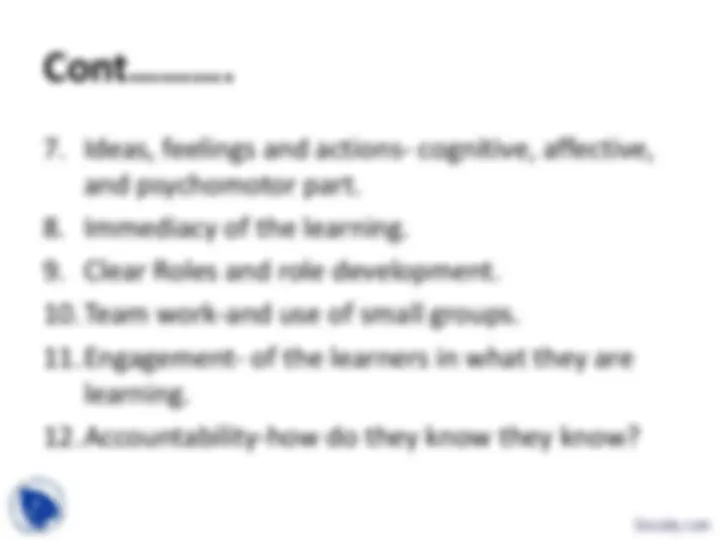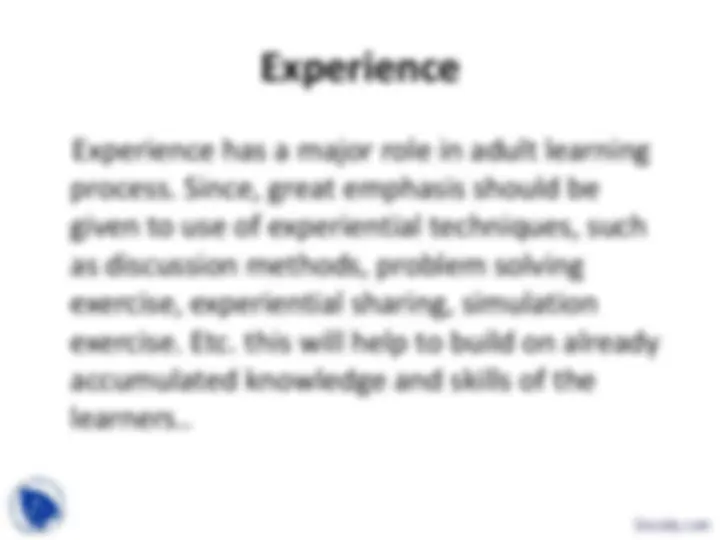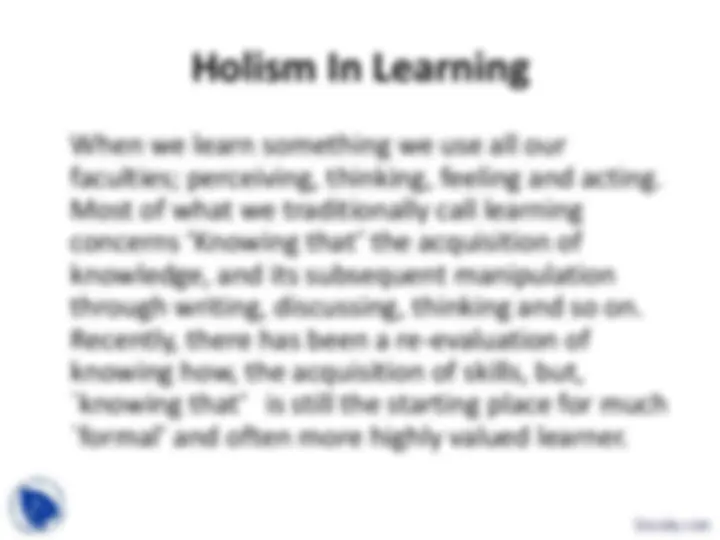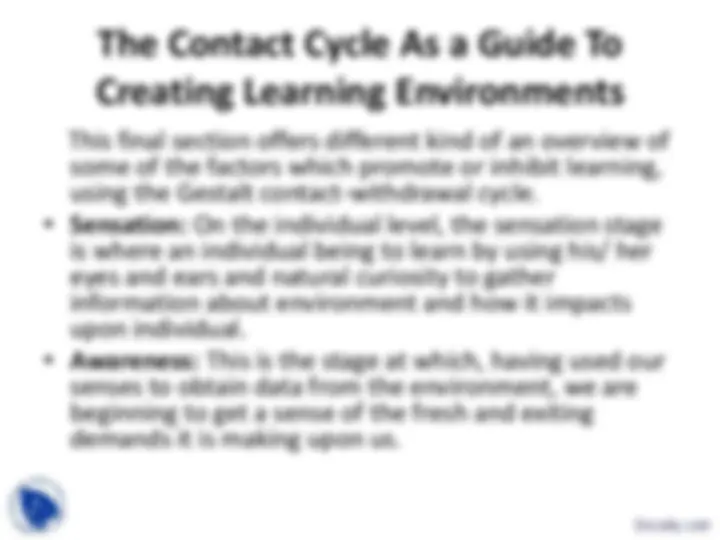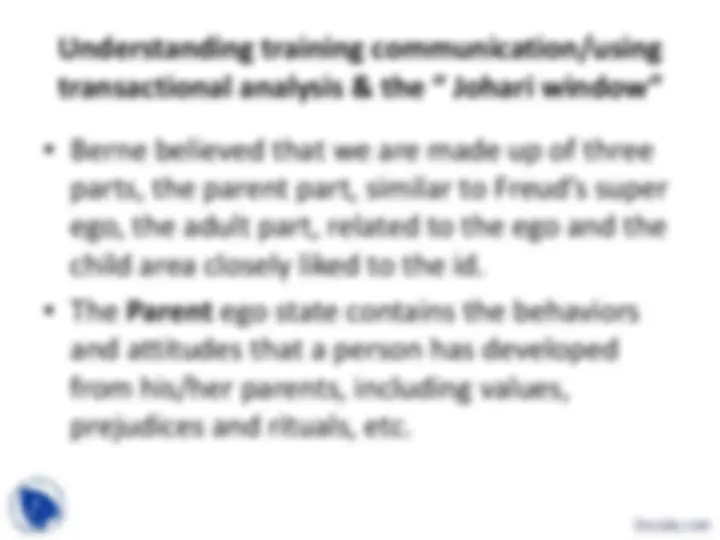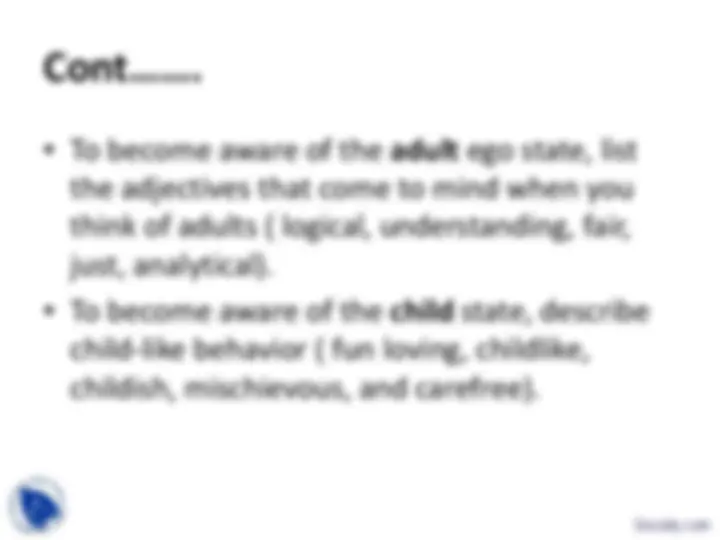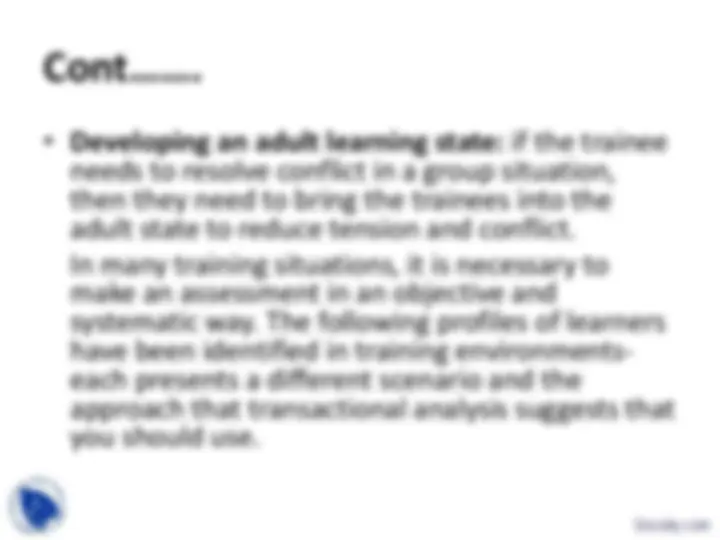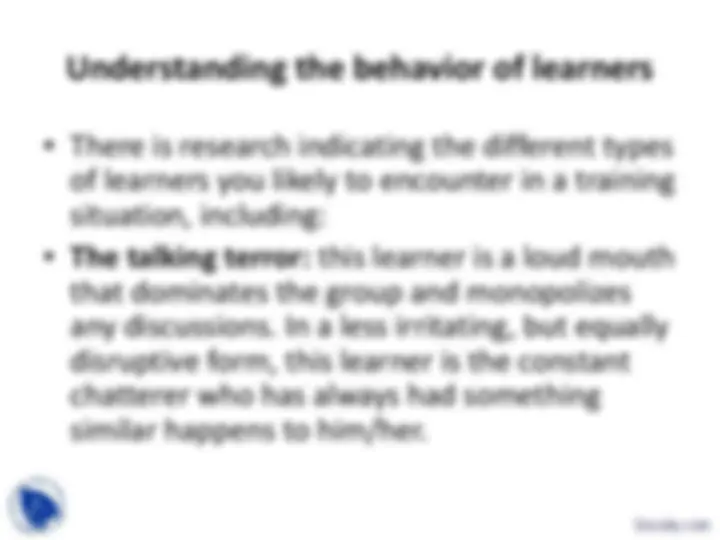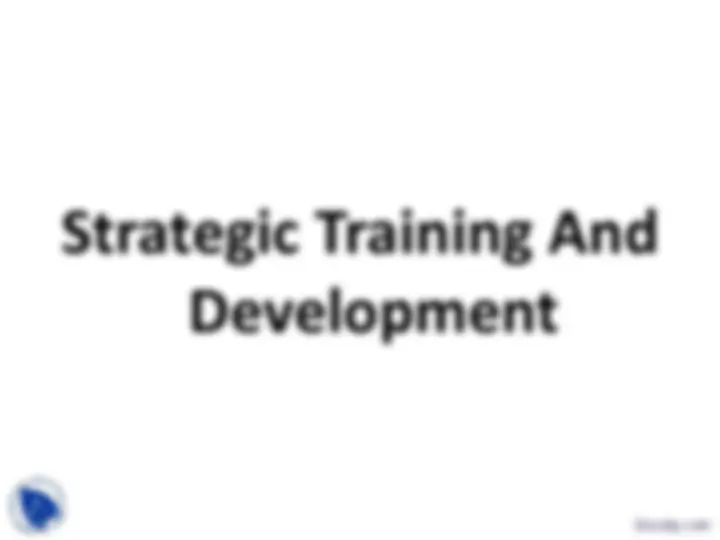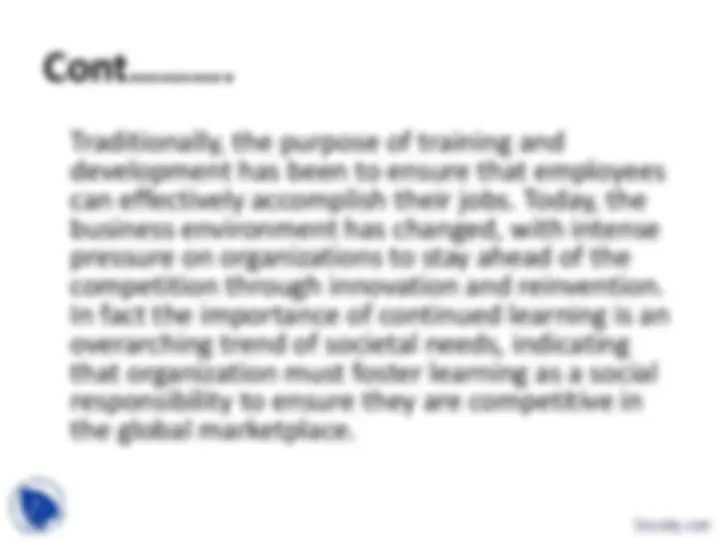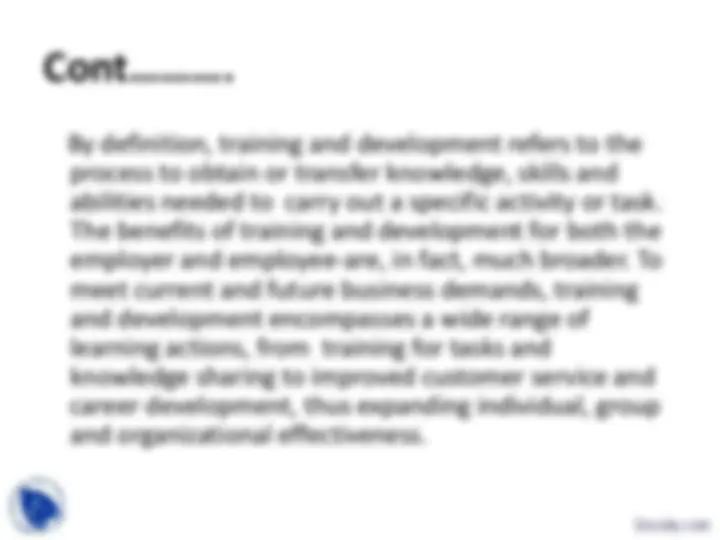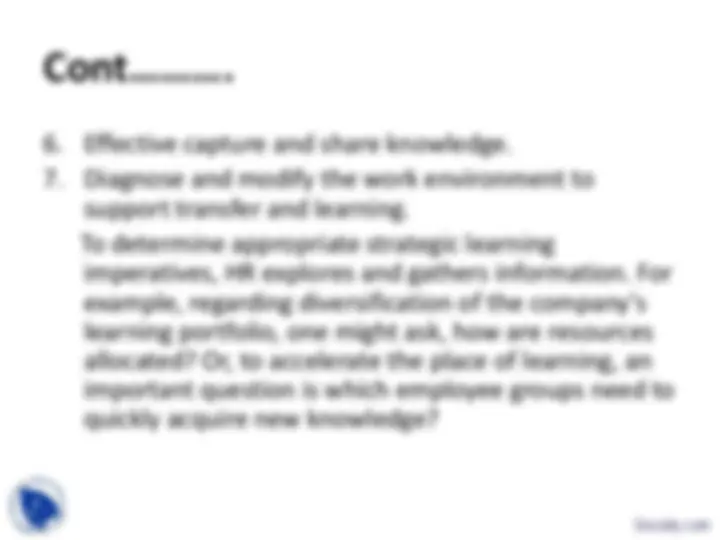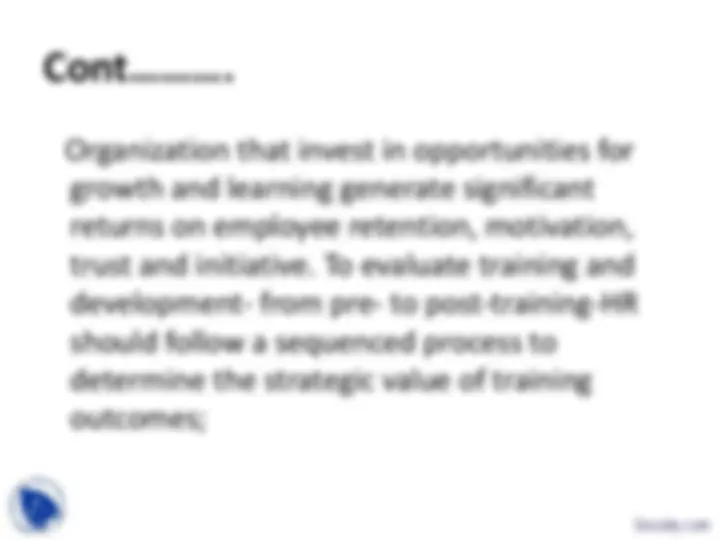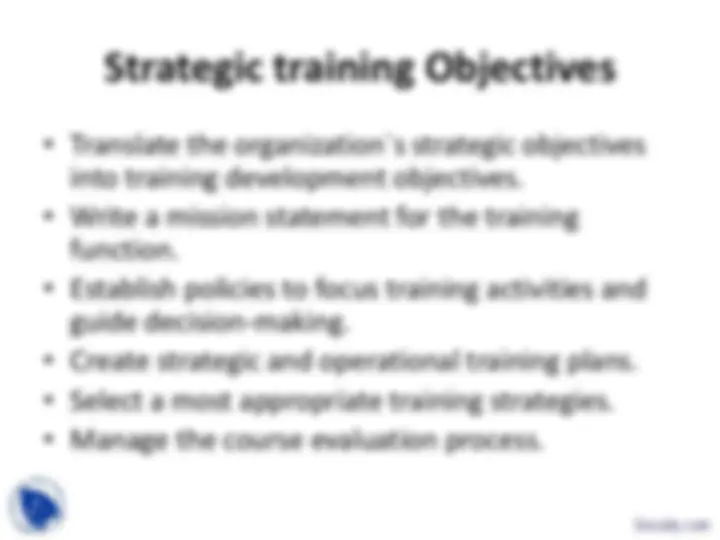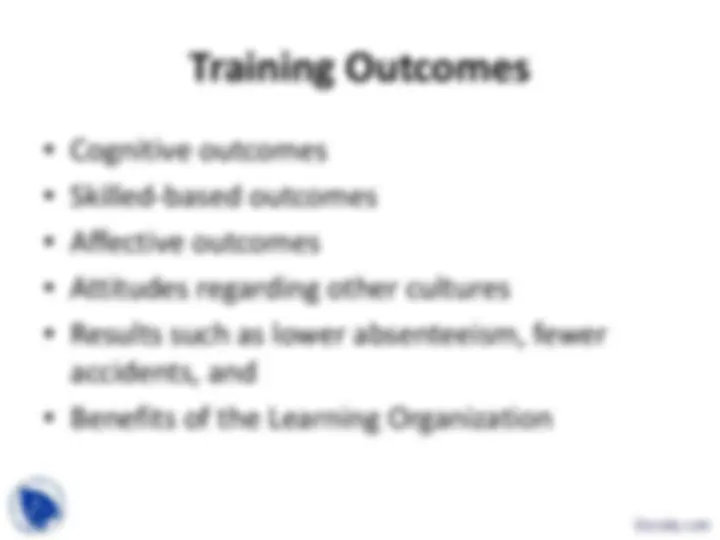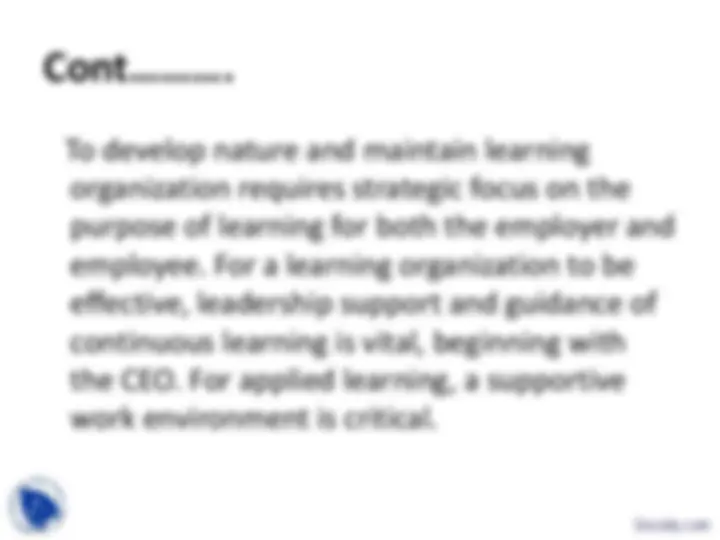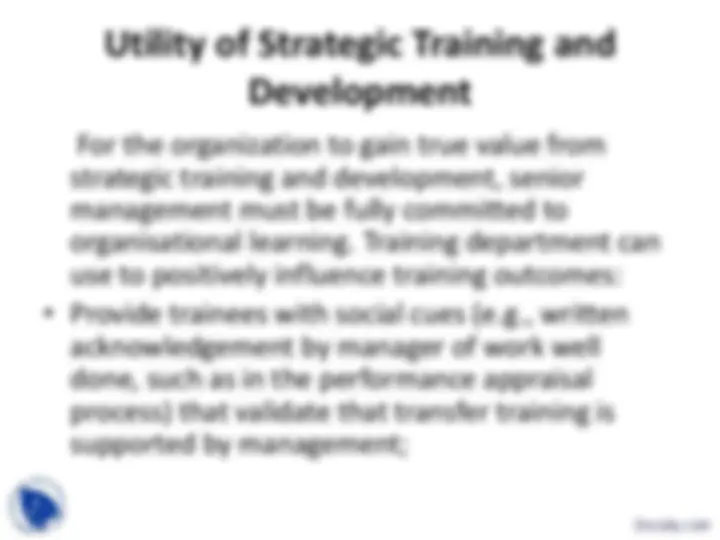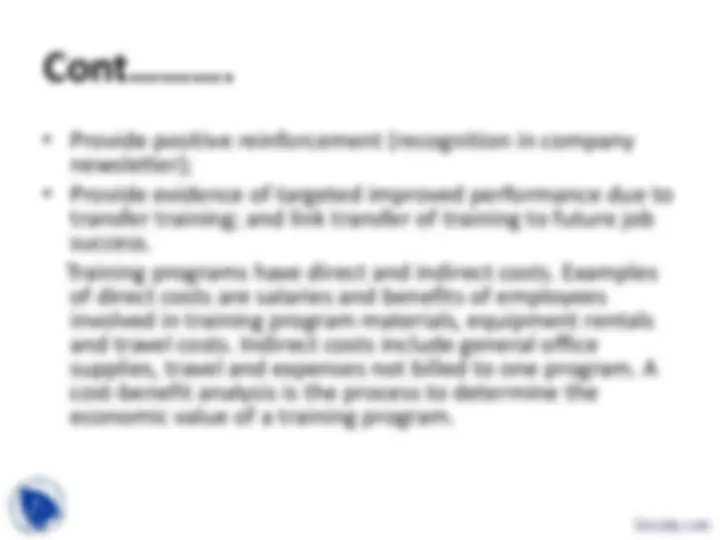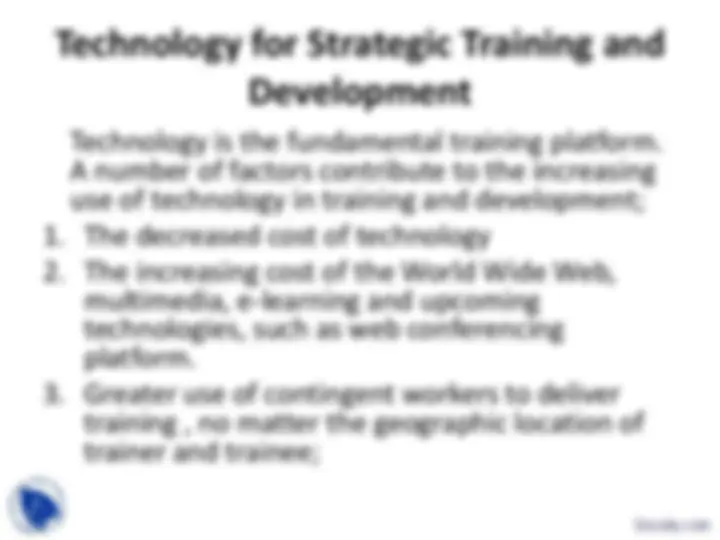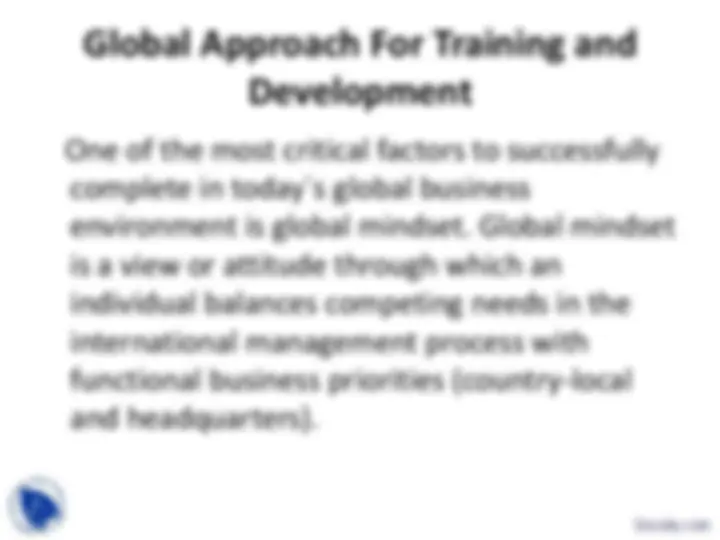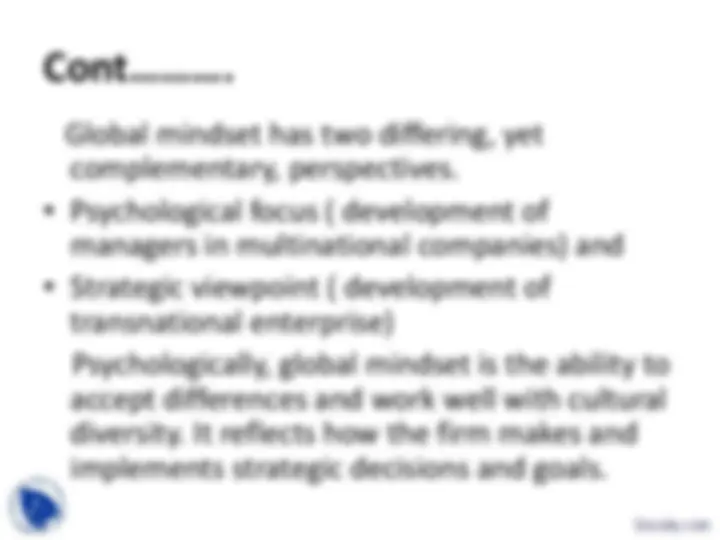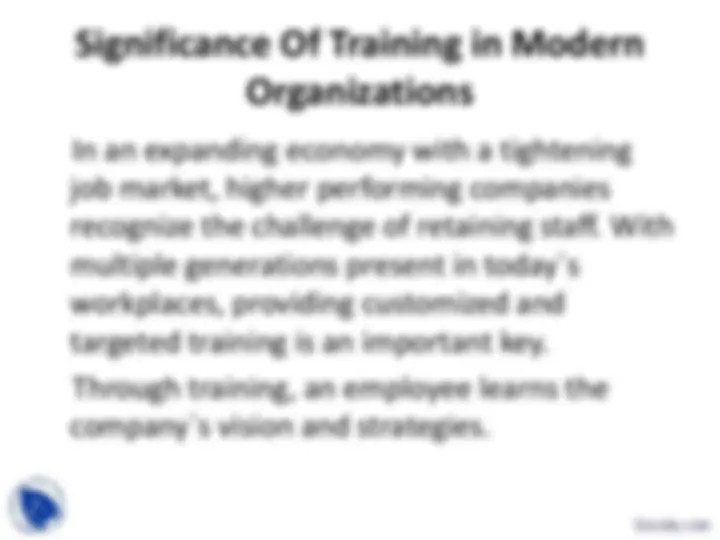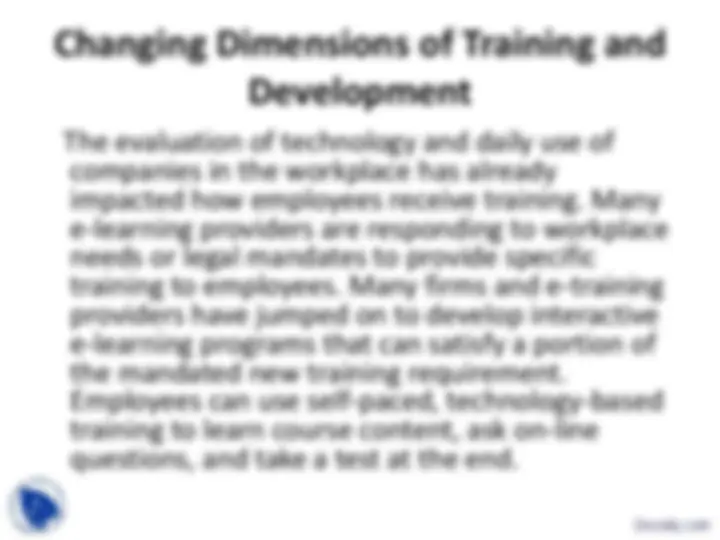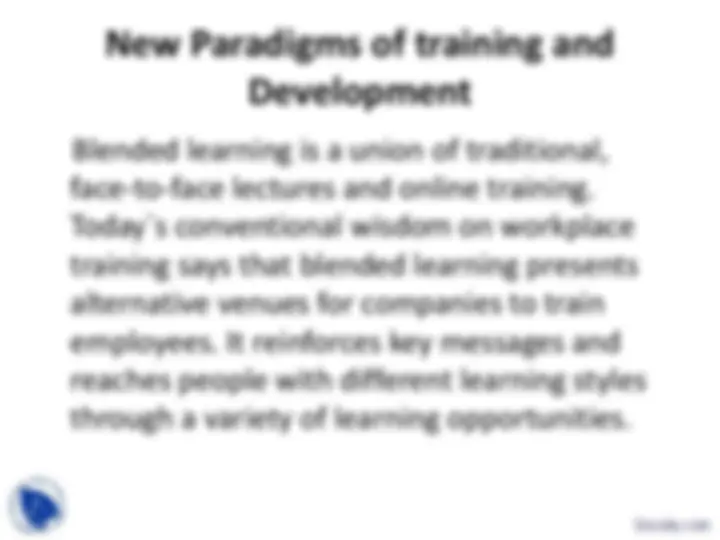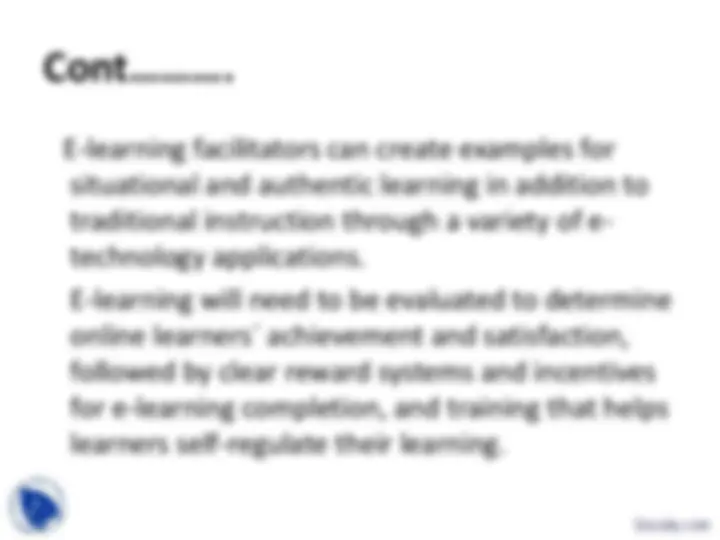Download Creating Effective Adult Learning: Environments and Learner Behavior and more Slides Training and Development in PDF only on Docsity!
Learning B
The Adult Learner- Andragogy
The 12 Principles for adult learning:
- Needs Assessment-Participation of the learners in naming what is to be learned.
- Safety in the environment and the process-We create a safe context for learners.
- Sound relationship-Between teacher and among learners.
- Sequence of content and reinforcement.
- Praxis- Action with reflection of learning by doing.
- Respect-for learners as decision makers.
Experience
Experience has a major role in adult learning process. Since, great emphasis should be given to use of experiential techniques, such as discussion methods, problem solving exercise, experiential sharing, simulation exercise. Etc. this will help to build on already accumulated knowledge and skills of the learners..
Cont……….
This may act in three ways:
- Enrichment of the existing experience;
- The new inputs may modify the existing experience and may make it more meaningful and diverse; and
- If the new experience is contradictory to the existing, the correct or more appropriate experience befitting to the situation may be learnt, which is the right thing to happen in the context of the dynamic changes taking place
Cont……….
As regards setting in training situation there are the conditions which characterise conduciveness to learning. A question might be asked in creating process to achieve those conditions.
- Participants should feel respected.
- Feeling to be conveyed that participants are supportive.
- Mutual trust between the Trainee & learner.
- Training environment should be fun.
- Human touch helps learning.
- A serious result-oriented approach is conducive for learning.
Holism In Learning
When we learn something we use all our faculties; perceiving, thinking, feeling and acting. Most of what we traditionally call learning concerns ‘Knowing that’ the acquisition of knowledge, and its subsequent manipulation through writing, discussing, thinking and so on. Recently, there has been a re-evaluation of knowing how, the acquisition of skills, but, knowing that’ is still the starting place for muchformal’ and often more highly valued learner.
Cont…….
- Mobilization: This refers to the stage of energizing, where, having some idea of what we want to do, we prepare ourselves for doing it. On an individual level, we can stop this process happening in all sorts of ways.
- Action: If I am to learn what I need to learn, I need to take some action to engage with my environment. I need to join in, to take risks, to start to involve myself with the exercise and the process.
- Contact: In terms of learning, the contact stage is where we begin to chew over the material, to break it down, and begin to understand its meaning and implementations.
Cont…….
- Satisfaction/Completion: This is the review stage, where we see whether we have learned what we needed to congratulate ourselves on our achievement. We need to review what we have done, and what we have not done, which possibly remains to be done at some future time. We may also be drawing out further learning, about how we went about things, and how this might be done better in future.
Understanding training communication/using transactional analysis & the “ Johari window”
- Berne believed that we are made up of three parts, the parent part, similar to Freud’s super ego, the adult part, related to the ego and the child area closely liked to the id.
- The Parent ego state contains the behaviors and attitudes that a person has developed from his/her parents, including values, prejudices and rituals, etc.
Cont…….
- To become aware of the adult ego state, list the adjectives that come to mind when you think of adults ( logical, understanding, fair, just, analytical).
- To become aware of the child state, describe child-like behavior ( fun loving, childlike, childish, mischievous, and carefree).
Cont…….
- Profile 1: critical parent: this profile tends to present a trainee who is difficult to work with.
- Profile 2: adopted child: this trainee is often found in traditional organisations, where managers tend to treat other employees as children and foster a dependency relationship.
- Profile 3: free child: child-dominant trainees tend to be lively and enthusiastic in a training environment.
Cont…..
- Profile 4:adult : this profile presents a trainee who is logical and objective.
- Profile 5: parent/adult: this profile gives the trainee the facility to move quickly from parent to adult.
- Profile 6: critical parent & free child: in this profile, the charm of the child adds intuition and creativity to the power of the adult.
Cont….
- Talking terror is invariably the consequence of insecurity. The talker often that he must prove himself before the trainer and/or group. Consequently, this learner may spend much time trying to demonstrate to the group a depth of knowledge in order earn respect.
Strategic Training And
Development

